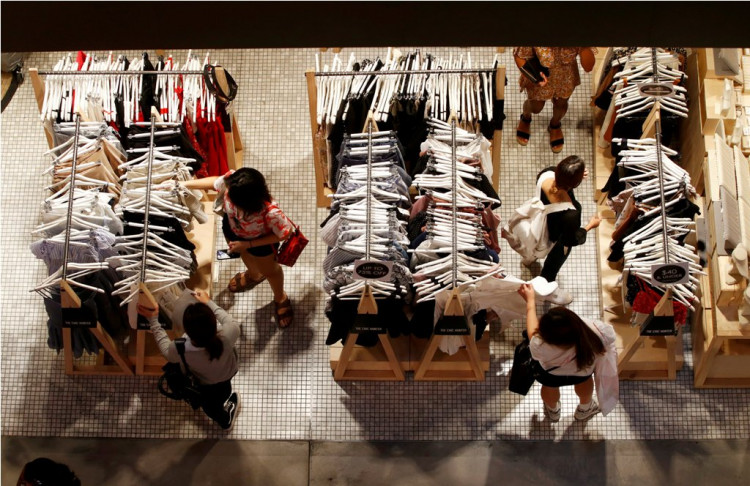Despite the Chinese market's slowdown in technology-related consumption, the consumer goods sect is said to be performing well, including Uniqlo, a Japanese casual wear giant.
The Wall Street Journal reported that tech-related exports to China impacted low-profit records of machinery, automobile, and electronics sects over the past few months. On the other hand, luxury and clothing sects appear to be doing fine.
Chief Executive of Uniqlo, Tadashi Yanai said "Our same-store sales [in China] have been making double-digit growth so we haven't seen any impact on consumption," indicating that Chinese consumers are still spending on other products aside from tech and electronics.
Kose Corp, another Japanese company that sells skin-care products, said sales in China rose by 45 percent during the third quarter of 2018. Kose reported that this particular sales hike was propelled by consumers patronizing its Decorté brand.
The musical instruments sect also appeared to welcome Japanese manufacturers as Yamaha Corp. reported that sales increased by 15 percent in the fourth quarter of last year. Satoshi Yamahata, an executive at Yamaha said, "There was growth within all categories of instruments, but piano sales were especially promising."
Last year, Uniqlo confidently told the media that the brand has what it takes to counter the negative effects of the China-U.S. trade war. His statements were made ahead of the Chinese slowdown that impacted tech consumption in the country.
According to Nikkei Asian Review, Fast Retailing Chief Financial Officer, Takeshi Okazi said he believes trade disputes between two of the world's greatest economies are "not going to lead to serious problems." He added that the company is working on a system that will render Uniqlo and other brands under the clothing line to endure any problem in the future.
Meanwhile, Uniqlo is reportedly still prioritizing Asia in terms of expansion plans. While the main brand of Japan's Fast Retailing clothing giant already has extensive exposure in Asian markets, the company is not yet planning to expand further to western markets.
In an interview with The Economist last week, Yanai referred to Asia as "the engine growth of today." In fact, the brand is already prepping to open its first store in India sometime this year. Vietnam is another consideration that Yanai and the board are considering. In Asia, Uniqlo already has multiple stores in Thailand, Singapore, and Indonesia.
While Spanish competitor Zara and Swedish rival Hennes & Mauritz are selling clothes that follow current fashion trends, Yanai's plan is to stick to the classics. He believes that Uniqlo will keep rising in Asia through this strategy.






